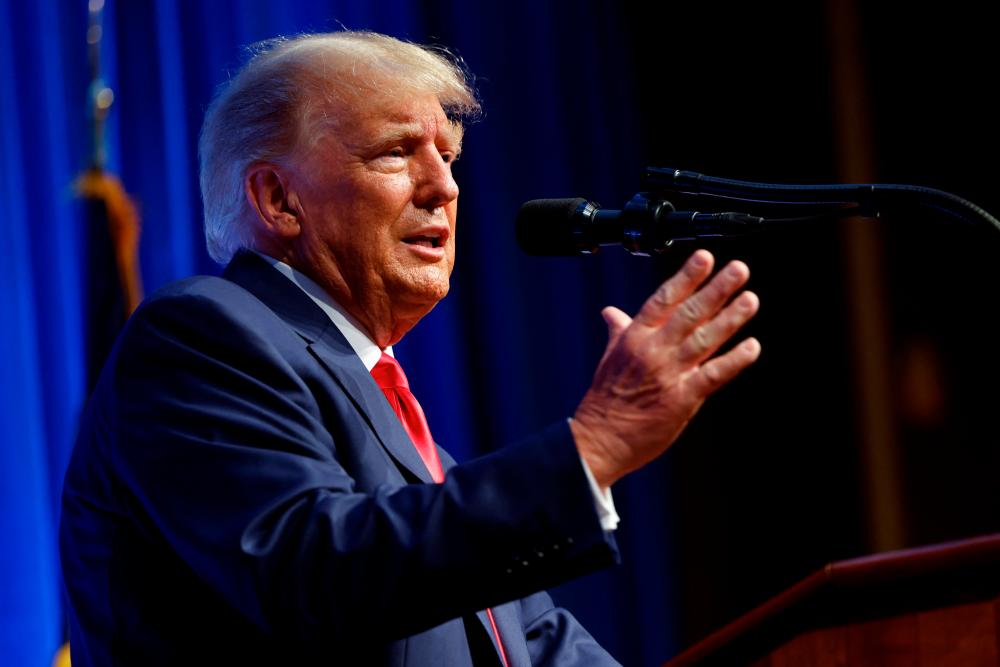WASHINGTON: Former U.S. President Donald Trump is seeking to delay sentencing in his New York criminal hush money case until after the Nov. 5 election, citing “election-interference objectives.”
Trump, the Republican presidential candidate, is scheduled to be sentenced on Sept. 18. That is two days after Justice Juan Merchan is set to decide on his bid to overturn the Manhattan jury’s May 30 guilty verdict in light of the U.S. Supreme Court’s landmark ruling on presidential immunity.
In a letter to Merchan dated Aug. 14 and made public on Thursday, Trump’s defense lawyers argued he should be given more time to potentially appeal Merchan’s immunity ruling before being sentenced.
“Setting aside naked election-interference objectives, there is no valid countervailing reason for the Court to keep the current sentencing date on the calendar,“ Trump lawyers Todd Blanche and Emil Bove wrote. “There is no basis for continuing to rush.”
A spokesperson for the Manhattan District Attorney’s office, which brought the charges, declined to comment.
Following the first-ever criminal trial of a current or former U.S. president, Trump was found guilty of falsifying business records to cover up his then-lawyer Michael Cohen’s $130,000 payment to porn star Stormy Daniels.
The payment was meant to secure Daniels’ silence before the 2016 election about a sexual encounter she says she had with Trump a decade earlier, which Trump denied. Prosecutors called the payment part of a broader scheme to corrupt the 2016 election, in which Trump defeated Democrat Hillary Clinton.
Trump, 78, was initially set to be sentenced on July 11.
Merchan delayed it after the Supreme Court ruled in a separate criminal case Trump faces that U.S. presidents cannot be criminally prosecuted for official acts, and that evidence of presidents’ official actions cannot be used to help prove criminal cases involving unofficial actions.
Trump’s lawyers have said the decision means the hush money verdict must be set aside. Prosecutors argued the conduct at issue in the case involved personal conduct, not official acts.
Falsifying business records is punishable by up to four years in prison, but many defendants convicted of that crime in the past have been sentenced to fines or probation.









